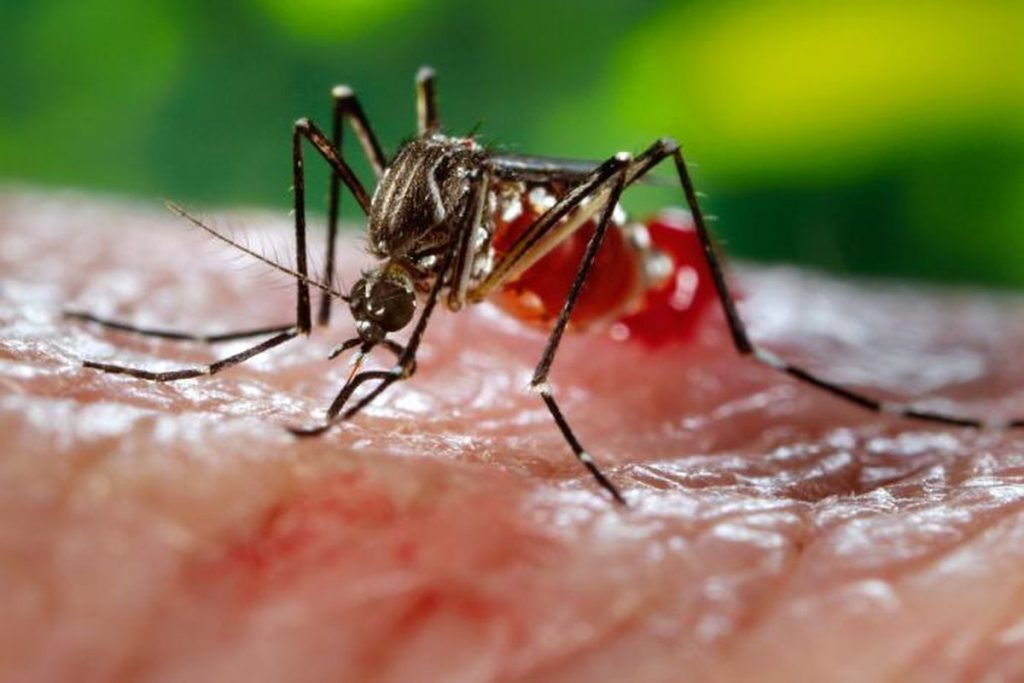Washington: The world is in a race against time to produce a vaccine that would enable it to tackle the dreaded coronavirus. But then it is not the only vaccine that researchers are looking at. Some scientists are trying to produce vaccines that will fight other viruses too. One such person is Jessica Manning.
Novel idea
Five years ago scientist Jessica Manning struck on a novel idea. Rather than spend more years in what felt like a futile search for a malaria vaccine, she would take on all mosquito-borne pathogens at once. Her idea revolved around mosquito spit.
Manning started building on the work of colleagues and other scientists.A clinical researcher for the US National Institute of Allergy and Infectious Diseases, she believed she could use pieces of mosquito saliva protein to build a universal vaccine.
Utility of new vaccine
The vaccine, if it pans out, would protect against all of the pathogens the insects inject into humans. Among them are malaria, dengue, chikungunya, Zika, yellow fever, West Nile, Mayaro viruses and anything else that may emerge.
“We need more innovative tools,” Manning was quoted as saying by ‘The Lancet’. “A vaccine like this would be the Holy Grail,” she added.
‘The Lancet’ published Thursday the initial results of this work with her colleagues. It is the first-ever clinical trial of a mosquito spit vaccine in humans. The trial showed that an Anopheles mosquito-based vaccine was safe and that it triggered antibody and cellular responses.
‘Foundational’ work
Michael McCracken, a researcher not involved in the study, called the initial results ‘foundational’. “This is big, important work,” said McCracken. He studies immune responses to mosquito-borne viruses at the Walter Reed Army Institute of Research in Maryland. “Mosquitoes are arguably the deadliest animal on Earth,” he added.
Hazards of malaria
Malaria alone kills more than 400,000 people each year, according to the World Health Organization (WHO). Those deaths occur mostly in poor countries that do not receive as much vaccine research and funding. Because of global warming, however, those mosquitoes that thrive in the tropics are moving into more countries each year.
The global disruption of the coronavirus pandemic has brought a sharp focus to infectious diseases and vaccine research. One of the key areas of concerns is whether pathogens are transmitted by mosquitoes. The novel coronavirus is believed to have originated in bats.
Manning’s research is specific to mosquitoes. However, it is an example of how scientists are broadening their thinking about how to tackle infectious diseases. They are developing new types of tools in the fight against various pathogens and viruses.
Vector-based vaccine
Manning is looking for is called a vector-based vaccine. A vector is the living organism – like a mosquito. It transmits a pathogen such as malaria – between humans, or from animals to humans.
All existing vaccines for humans target a pathogen. Manning’s goes after the vector. The idea is to train the body’s immune system to recognise the saliva proteins and mount a response that would weaken or prevent an infection.
Scientists have known for decades that mosquito spit helps establish mosquito-borne infections and enhance their severity. Just recently, scientists have begun to exploit this.
Phase I trials
The Phase I trial for the Manning vaccine was conducted at the National Institutes of Health Clinical Center in Bethesda, Maryland. It was tested for safety and side effects in 49 healthy volunteers.
Participants were randomly assigned to receive one of two versions of the vaccine or a placebo. After a few weeks, hungry mosquitoes were placed on the arms of study participants. The study measured immune response to the mosquito spit proteins but did not involve pathogens.
More trials are needed to determine the effect the mosquito spit vaccine would have against actual pathogens. Till then the world will wait with bated breath.
